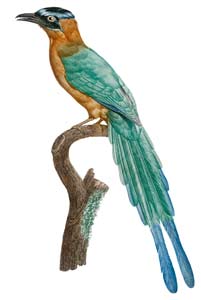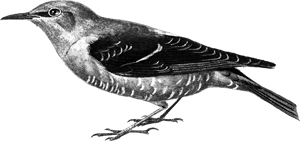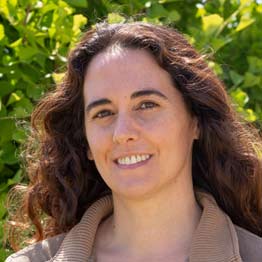
OCTOBER 2025
Scientific bird banding and laboratory
and laboratory analysis techniques
 During this course, participants will learn the importance of bandingThe company has developed a series of tools, best practices for doing this ethically and safely, and data analytics techniques to help interpret the information collected.
During this course, participants will learn the importance of bandingThe company has developed a series of tools, best practices for doing this ethically and safely, and data analytics techniques to help interpret the information collected.
Practical aspects will also be addressed thanks to two field trips in which the different bird species will be identified with their individual characteristics and the use of specific tools and equipment.
DATES |
FRIDAY AFTERNOON ( 16-20 h. ) |
SATURDAY MORNING ( 09-13 h. ) |
October 3-4 |
Module 1: 4 hours theoretical |
Module 1: 4 hours practical (field) |
October 10-11 |
Module 2: 4 hours of theory |
Module 2: 4 hours practical |
October 17-18 |
Module 3: 4 hours theoretical |
Module 3: 4 hours practical (field) |
October 24-25 |
Module 4: 4 hours theoretical |
Module 4: 4 hours practical |
![]()
Location:
University of Navarra
![]()
Modality:
On-site
![]()
Language:
English
Module 1
Introduction to scientific bird banding
What is banding?
Banders
Capture methods
Data collection:
- Biometric measurements
- Biological samples
Ethical principles (codes) and animal welfare

Module 2
Moulting and its characteristics in birds
Molting is a biological process of birds, and if we know its types and evolution, we can know the age of the birds.
The molting phenomenon. Partial molt and complete molt
Molting strategies in different families of passerine birds.
Age dating or identification through molting and "ITL" (Iris, Tarsus, Tongue), to date them with the international Euring codes.
More complex moulting: interrupted moulting, suspended moulting, etc.
Moulting sheets: what are they and what are they for?

Module 3
Techniques and tools for data analysis
As for laboratory analysis techniques, these may include genetic and transcriptomic analysis; bioinformatic processing; diet analysis; or health studies with evaluations of diseases and parasites that may affect birds. These techniques complement banding and allow us to obtain a more complete vision of bird life, and therefore, of the environment that surrounds us.

Module 4
Techniques and tools for molting analysis
Molting is a fundamental process in bird biology, as it allows the replacement of worn plumage and ensures optimal flight performance, thermal insulation and protection. However, not all species molt in the same way or with the same frequency. The duration, pattern and extent of molt can vary according to age, physical condition and environmental factors, making the study of molt a key tool for understanding the ecology and health status of bird populations.
Study of plumage coloration and molting strategies:
- Plumage color as a biological indicator: relevance in communication, sexual selection, and camouflage.
- Partial molt and complete molt.
- Changes in coloration associated with molting.
- Differences in coloration between immature and adult individuals.
- Impact of environmental factors (climate, diet) on plumage coloration.
Statistics of the changes:
- Methods for determining the duration, pattern and extent of shedding.
- Use of statistical tools to describe the changes.
Case Study: Common Crossbill:
- Onset and duration of molt in relation to opportunistic breeding.
- Geographical variation in plumage coloration and molt pattern.
- Relationship between plumage coloration, molt and individual quality.
These techniques and tools are essential to maximize the value of data obtained through scientific banding, allowing researchers to make informed decisions about bird conservation and management.

Speakers

Daniel Alonso Urmeneta
Expert bander
Member of the Banding Commission of the Aranzadi Banding Office since 1994.

Blanca Fernández Eslava
Expert banding
D. in Biology from the University of Navarra.

Alazne Díez Fernández
Expert banding
D. in Biology from the University of Seville.
Registration
Individual module
50 euros per person
Two modules
80 euros per person
Three modules
90 euros per person
Four modules
100 euros per person
* Discount for students of the University of Navarra and members of the Association: 50%.
To participate in this course write an email to this address:
